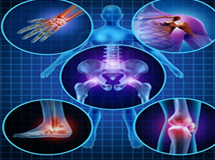Political Science and Economy

The Political Science and Economy program at North Carolina Open University is designed to equip students with the knowledge
and skills needed to navigate the complexities of modern political and economic landscapes.
This program combines theoretical foundations with practical insights, preparing graduates for diverse careers in public policy,
international relations, economic analysis, government, and more.
With a focus on critical thinking, policy analysis, and global perspectives, our curriculum ensures that students are
well-prepared to address the challenges and opportunities of an interconnected world.
Core Courses:
- Introduction to Political Economy:An overview of key concepts, theories, and methodologies in
political economy, examining the relationship between politics and economics.
- Microeconomics for Political Scientists: Basic principles of microeconomics with an emphasis on how
individuals and firms make decisions, market structures, and the implications for political analysis.
- Macroeconomics for Political Scientists: Analysis of aggregate economic phenomena such as inflation,
unemployment, economic growth, and fiscal and monetary policy, and their political implications.
- Political Theory and Economic Thought: Exploration of the historical development of economic
thought and its intersection with political philosophy, including liberalism, socialism, and other ideologies.
- Quantitative Methods in Political Economy: Introduction to statistical techniques and methods
commonly used in political economy research, including regression analysis, causal inference, and data
visualization.
- Qualitative Methods in Political Economy: Examination of qualitative research methods such as case
studies, interviews, content analysis, and ethnography, and their application to political economy research.
Elective Courses:
- Comparative Political Economy: Comparative analysis of economic systems, institutions, and policies
across different countries or regions, focusing on factors such as globalization, welfare states, and
development strategies.
- International Political Economy: Study of the interaction between politics and economics at the
international level, including topics such as international trade, finance, development aid, and global
governance.
- Economic Policy Analysis: Evaluation of public policies related to taxation, regulation, social welfare,
and economic development, using economic principles and political analysis.
- Labor Politics and Policy: Examination of labor markets, labor unions, and labor policies, analyzing
their impact on economic outcomes, social equity, and political dynamics.
- Environmental Politics and Economics: Exploration of the intersection between environmental issues,
economic development, and political decision-making, including topics such as climate change policy,
natural resource management, and sustainable development.
- Financial Markets and Institutions: Study of financial systems, institutions, and markets, analyzing
their role in economic stability, growth, and distribution, as well as their political dimensions.
Capstone Project or Thesis:
Students may be required to complete a capstone project or thesis, in which they conduct original
research on a topic related to political economy under the supervision of a faculty member.
Course offerings may vary between institutions, and students may have the opportunity to
customize their course of study based on their interests and career goals. Additionally, some programs
may offer interdisciplinary courses or allow students to take electives from related fields such as
economics, sociology, or public policy.








